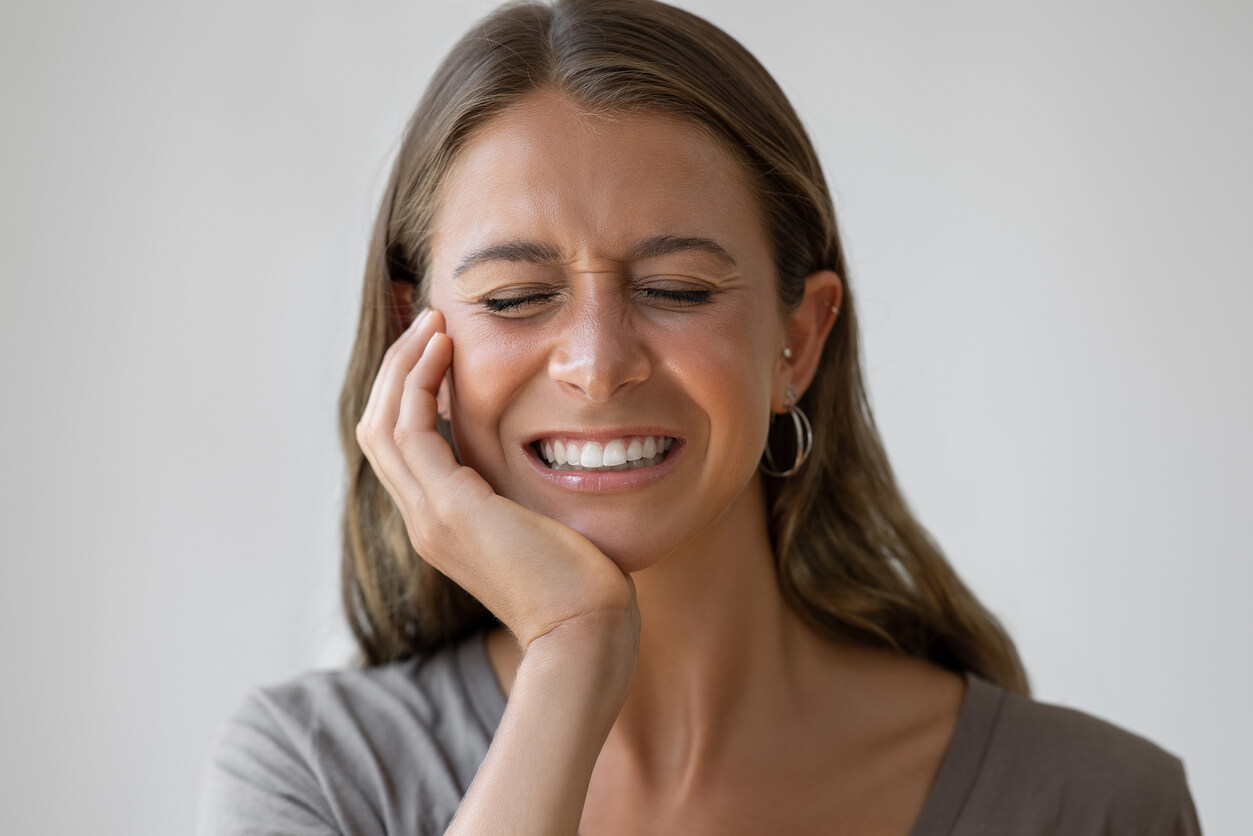Mar
28

Whether it’s due to stress, an abnormal bite, or anxiety, teeth grinding (bruxism) is a condition that silently affects many of us, often without our knowledge. This involuntary habit can lead to a variety of dental health issues, from worn tooth enamel to increased tooth sensitivity, and even alter the quality of our sleep.
But fear not, as understanding and addressing the root causes can help manage this condition effectively, ensuring your teeth remain healthy and your nights are more restful.
Teeth Grinding Explained
Teeth grinding, or bruxism, is often an unconscious action that can occur both during the day and at night. While it might seem harmless at first, chronic grinding can lead to serious dental and health issues if left unchecked. This behaviour is frequently triggered by stress, anxiety, an abnormal bite, or sleep disorders, so understanding what triggers this behaviour in you is the first step towards prevention.
Recognising the Signs and Symptoms
The signs of teeth grinding are not always obvious, especially if it occurs during sleep. However, common indicators include jaw soreness, headaches upon waking, and teeth that appear flattened, fractured, or chipped. Additionally, your partner may hear the grinding at night.
Recognising these symptoms early (although they can indicate other conditions) is key when it comes to preventing long-term damage to your teeth and jaw.
Impact on Oral Health and Sleep
It’s important to point out that chronic teeth grinding affects not just your oral health – by wearing down the enamel, increasing tooth sensitivity, and leading to temporomandibular joint (TMJ) disorders – but also the quality of your sleep. The effort of grinding can disrupt your sleep cycle, leading to daytime fatigue and decreased overall well-being. And with cruel irony, this cycle of poor sleep and stress can further exacerbate your grinding, making it a priority to break this cycle for the sake of your health.
Also Read: What Causes Tooth Sensitivity?
Natural Remedies for Daytime Teeth Grinding
For those who find themselves grinding their teeth during the day, several mindfulness and physical exercises can prove beneficial; techniques such as consciously relaxing your jaw muscles throughout the day, massaging your jaw and neck muscles to relieve tension, or using visual cues to remind yourself not to clench can train your jaw to stay relaxed and prevent grinding.
Additionally, avoid chewing gum or anything that isn’t food, as these actions can acclimate your jaw to clenching, exacerbating the problem.
Creating a Relaxing Bedtime Routine
A key factor in reducing nighttime teeth grinding is to establish a calming bedtime routine, and this routine can include activities such as reading, listening to soothing music, taking a warm bath, or practising relaxation techniques like meditation or deep breathing exercises. These activities help signal to your body that it’s time to wind down and prepare for restful sleep, reducing the likelihood of grinding.
You May Also Like: How can you rebuild receding gums?
The Role of Dental Care
Maintaining regular dental check-ups plays a vital role in preventing and managing teeth grinding; a dentist can identify signs of bruxism early and provide interventions, one of the most notable being a custom-fitted mouth guard, which can be worn to protect your teeth during sleep.
Furthermore, addressing any dental issues that may contribute to grinding with an orthodontist or other dental experts, such as misaligned teeth, can be transformative when it comes to managing this condition.
Lifestyle Adjustments for Better Sleep
Improving your overall sleep hygiene can also play a significant role in mitigating teeth grinding. This includes optimising your sleep environment for comfort, limiting exposure to screens before bedtime, and maintaining a consistent sleep schedule. Ensuring you get enough restful sleep can reduce stress and, by extension, the likelihood of grinding your teeth.
Stress Management Techniques
Given that stress is a common trigger for teeth grinding, adopting effective stress management techniques should also be in your treatment plan. Engaging in regular physical activity, practising yoga or mindfulness, and pursuing hobbies or activities that relax you can significantly reduce your stress levels; and remember that managing stress not only helps prevent teeth grinding but also improves your overall health and quality of life.
Read Next: Can Toothache Cause Headache?
Seeking Professional Help
If your efforts to stop teeth grinding on your own are unsuccessful, it’s a good idea to seek help from a dental professional. When you go for an appointment, you’ll be able to access tailored advice, get fit for a mouth guard, and be recommended further treatment options to prevent damage to your teeth. In some cases, referral to a specialist or a sleep study may be necessary to address underlying issues. But you’ll want to catch bruxism early – underlining again the importance of dental appointments.
Supporting Children with Teeth Grinding
Finally, remember that teeth grinding is not exclusive to adults; children can also be affected, especially during periods of stress or growth. Paying close attention to your child’s dental health and ensuring they have a relaxing bedtime routine can help mitigate this problem if it occurs.











